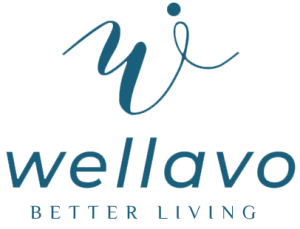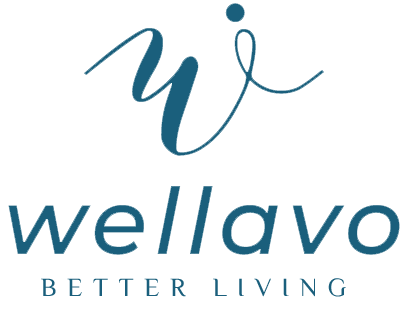Including some stretching in your daily morning routine can help energize you for the day. That could mean you can skip that coffee until midmorning, when you might need it more.
It can also help you go into the day with higher levels of confidence. This sequence can take less than 10 minutes, or longer if you want to stay in poses for a few breaths longer or repeat the whole sequence a few times.
It can really make a difference in how both your body and your mind start the day.
This restorative pose is great for gently stretching out your hips, pelvis, thighs, and spine, all of which can be a bit tight in the morning. It can feel really great if you’ve slept a little “wrong” or twisted up. It also calms the brain and relieves stress and fatigue, so it can be helpful for starting the day off on the right foot.
Equipment needed: For all these poses, a yoga mat is a good. If you don’t have a yoga mat, you should be on a carpet or stable rug (you won’t slip on the wood!) to cushion your knees.
Muscles worked: This lengthens your gluteus maximus, piriformis, other rotators, hamstrings, spinal extensors, and more.
- Begin on all fours on the mat,
with your knees directly under your hips but your big toes touching. You can
widen your toes if having them touching puts any pressure on your knees. - Inhale and feel your spine grow
longer. - As you exhale, take your butt
back to your heels and tuck your chin to your chest. - Rest here, with your forehead on
the ground and your arms outstretched. You can also put your arms next to your
body, palms resting up if you prefer. - Hold this for 5 deep, even
breaths.
These two poses done together can increase the circulation of your spinal fluid. This will help lubricate the spine, stretch your back and torso, and gently massage the organs in the abdominal area. All of these are good to help you wake up and go into the rest of your day.
Muscles worked: This moves your spine, releasing tension in it, and your arm, abdominal, and back muscles.
- Push up from Child’s Pose onto
all fours, the top of your feet flat, shoulders directly over your wrists, and
hips directly over your knees. - As you inhale, drop your belly,
letting your back arch but keeping your shoulders rolled back and down (this is
Cow). Look slightly upward toward the ceiling. - As you exhale, press into your
hands into the ground and round your upper back (this is Cat). - Continue moving, arching on your
inhales and rounding on your exhales, repeating this for 5 breaths.
This pose is great for the morning because it’s a mild inversion. It resets your nervous system, calms the brain, and energizes the body.
It can also be therapeutic for sciatica and relieve fatigue. If you have back problems that impact your sleep and leave you achy and tired, this pose is especially for you. Consider doing it for twice as long as suggested below or returning to it between other poses in this sequence for three breaths each time.
Muscles worked: This pose actively works your arms, shoulders, wrists, and core, while it stretches your hamstrings, spine, and calves. A lot of your body is either working or stretching here.
- From all fours, push into your
hands, straightening your arms as you raise your hips and straighten your legs.
Note: You may want to inch your feet and hands a little farther apart, as a
longer stance is normally more comfortable and beneficial. Your heels don’t
have to be touching the ground here and won’t be for most people. “Working
toward the ground” (not being on your tiptoes) is fine. - As you exhale, press into your
hands and roll your shoulders down and back, moving your shoulder blades down
your back and your shoulders away from your ears. - Your spine should be neutral here.
You don’t want your upper spine working too hard, your shoulders hunched, or
your belly dropping too far toward the floor in a swayback. - Take at least 5 deep breaths
here, bending one knee and then the other as you do, to gently open up the back
of each leg. Settle into the pose by not moving your legs for at least 2 deep
breaths.
This pose opens up your side body and your hips, and quiets the mind while developing confidence. It’s not a bad addition to a morning practice.
Muscles worked: This pose stretches the side body, hamstrings, and hip flexors while strengthening your arms.
- In Downward Dog, be sure you are
grounding fully and evenly pressing into both hands, and take a deep inhale,
lifting your right leg as you do. - When your leg is as high as you
can comfortably get it while keeping your hips level with the ground, exhale
and let your right leg bend, with your heel moving toward your butt, and then
turn so that you can open the right side of your body. - Take two deep breaths here, taking
the time to let your hip and side open up and lengthen. - Straighten the right leg as you
square your hips back toward the mat, and gently return it to the ground as you
exhale. Switch sides.
This standing pose is what is known as a “power pose.” It can increase confidence, flexibility in your hips, focus, and it energizes the whole body.
Muscles worked: Warrior I strengthens your shoulders, back, arms, legs, and ankles. It opens your hips, chests, and lungs, and increases circulation.
- Beginning in Downward Dog, lift
your right foot and bend your knee in
toward your nose. - Plant your right foot between
your hands or, if needed, behind your right hand. (If you can’t get your foot
as close to your hand as you’d like, simply set it down, grab your ankle with
one hand, and help move it forward. Or you can rise to standing and inch it
forward.) - Once your right foot is planted,
rise to standing as you inhale deeply. Right now, both feet should still be
toes pointing toward the top of your mat. - If your foot didn’t go as far
forward as you’d like for this pose, inch it forward now. When your stance
feels stable, pivot your heel all the way to the ground, so your back foot is
flat on the ground and at about a 45-degree angle. Your heels should align if
you were to draw a line from one to the other. - Your back leg is straight and
your front leg bent, knee over ankle. As you sink your hips a little bit more,
deepen the stretch, inhale and lift your arms over your head, palms facing each
other but still parallel, at shoulder width. Take 3 deep breaths. - When you’re ready, you can go
back into Downward-Facing Dog to switch legs. Or you can lift your left heel
up, making your feet parallel again, then step forward with your left, take a deep
breath and as you exhale, step your right foot back to be the back foot.
Mountain Pose (Tadasana)
This pose always seems simple, but it can do a lot for your posture, your confidence, and the rest of your yoga practice if you do it right.
Muscles worked: Mountain pose works an assortment of muscles in your torso, legs, core, and arms. Even the arches of your feet should be engaged here.
- You can simply step your right
foot forward from the previous pose or you can, from Downward-Facing Dog, look
between your hands and step one foot, then the other up to meet at the top of
your mat, and rise to standing. - Your feet should either have your
big toes just barely touching, your heels will be a little bit apart, or you
can have your feet a few inches apart to improve your balance. - Relax your arms so they are
resting at your sides but are still active. Your shoulder blades will be rolled
down and onto your back, your neck elongated, and your palms facing forward to
keep them engaged. - As you inhale and exhale here,
shift your weight just the tiniest bit back and forth in your feet, to see if
you really are standing equally into both sides. Consider lifting just your
toes up and spreading them out, or maybe even seeing if you can get all 4
corners of your feet to take your weight equally. - Take 5 deep breaths here.
This pose calms the brain, relieves stress, fatigue, and anxiety, and stimulates the kidneys, liver, and digestion. It also feels kind of like you’re giving yourself a hug, which is never a bad thing.
Muscles worked: Uttanasana works your spinal muscles, your glutes, hamstrings, quadriceps, and piriformis.
- From Mountain pose, take a deep
breath in, lifting your hands up and out, until they meet above your head. - As you exhale that breath, fold
at your hip joints (not your waist), keeping your torso long and lifted as you
do. - Your legs will remain straight,
so you will place your hands wherever is most comfortable for you: on your
shins, ankles, feet, or even the floor. You can also bring your palms to the
backs of your calves or ankles. (Note: If none of those options feel OK for
your body, hold opposite elbows.) - Keep your feet planted firmly and
your hips over your heels. As you stay here for 5 deep, even breaths, remember
to elongate your core and spine on your inhalations. Release into your bend
with your exhalations. Fully relax your head and neck. - When you have completed five full
breaths here, release your arms from wherever they were as you exhale, and rise
back up, lifting from your hip joints and core, as you inhale. - Return to Mountain pose for 5
breaths to end the practice.
Everyone has their own morning routine: meditation, coffee, hot water with lemon, breakfast and a workout, etc.
By incorporating a quick yoga routine into yours, you can turn inward before you start your day. You’ll give yourself a little “me time” before putting it all out there. Plus, you’ll stimulate your organs, your brain, your muscles, and your focus.
You can also wait on your coffee until a more appropriate time.





